Trade Facilitation: NCS Engages Stakeholders on Renewable Energy for Efficiency, Celebrates One year of Advance Ruling Success
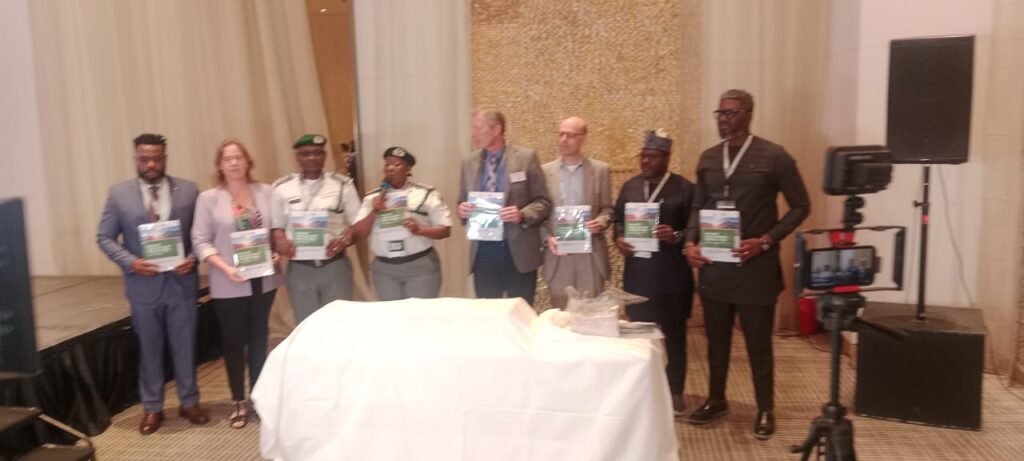
The Nigeria Customs Service (NCS) has expressed strong commitment towards simplifying Renewable Energy process and efficiency technology on imports, towards achieving robust trade facilitation in line with global best practices.

Bashir Adewale Adeniyi MFR, CGC, NCS
The Comptroller General of Customs, Bashir Adewale Adeniyi MFR who disclosed this on Monday, May 19, 2025 in his address at the Nigeria Customs Service (NCS) Trade Facilitation Stakeholder Consultative Forum 2025 held at The Marriot Hotel in Ikeja, said that trade facilitation has become integral to the operations of customs administrations globally in recent times, which aligned with the service core mandate of implementing international trade laws.
The CGC who was represented by Deputy Comptroller General of Tariff and Trade, DCG (Mrs) Caroline Niagwan at the event that as well marked the first anniversary celebration of the Advance Ruling Programme, also highlighted the importance of simplifying complex customs procedures to ensure seamless flow of legitimate Customs simplifies renewable energy import process, launches handbook.
The event, themed “Trade Facilitation Measures for Renewable Energy and Energy Efficiency Technologies,” witnessed the launch of a comprehensive handbook on import procedures for renewable energy/energy efficiency technologies designed to simplify the process of importing renewable energy equipment and help businesses achieve smoother trade, facilitating a quicker transition to cleaner energy adoption.
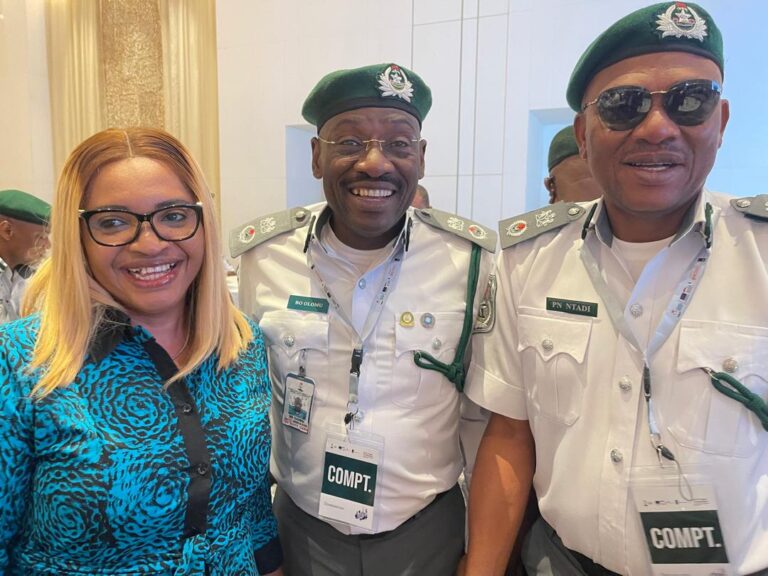
Key features of the handbook according to the Customs boss include customs regulations, tariff classifications for renewable energy equipment, compliance standards, documentation requirements, and step-by-step import procedures.
He said the handbook will help stakeholders navigate the complexities of importing renewable energy equipment, addressing misunderstandings in tariff classifications and import procedures.
The CGC explained that the implementations of the WTO Agreement on the Implementation of Article VII of GATT 1994 (Customs Valuation Agreement), the WCO Harmonized System Convention of 1988 and its Annexes, and the WTO Agreement on Rules of Origin, agreements by Customs stems from the traditional role of collecting duties on internationally traded goods, which is essential for national economic development.
While enumerating some of the challenges that necessitated the adoption of some of the measures, the CGC said, determining customs duties, through – tariff classification, valuation, and origin assessment, is a technically complex process.
“These complexities can result in disputes, delays, and additional costs.
“Moreover, challenges such as commercial fraud, revenue leakage, and the enforcement of policy measures to protect domestic industries, the environment, and public safety further complicate customs procedures.
“These issues often place a disproportionate burden on compliant traders, who suffer delays alongside non-compliant ones due to the high levels of scrutiny necessary to uphold statutory obligations.
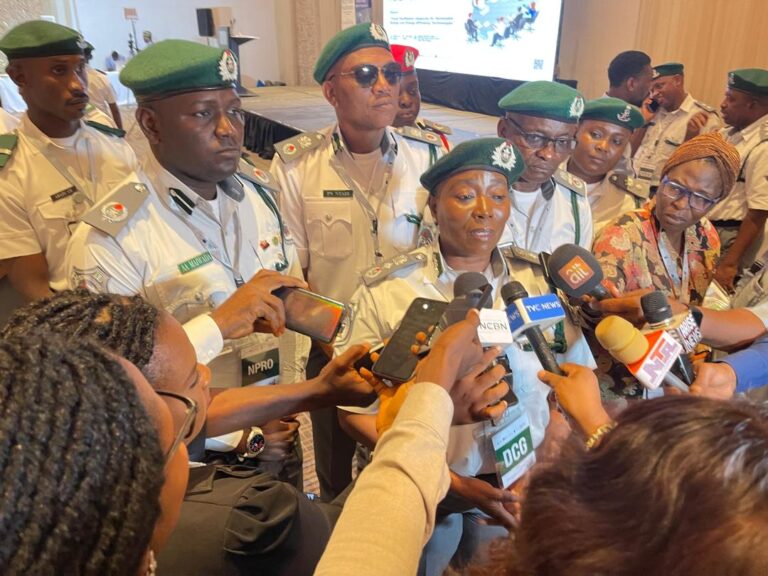
DCG Caroline Niagwan addressing media at the forum
“With the increasing volume of global trade, expanding global value chains, and the rise of e-commerce and Just-In-Time services, it has become imperative for Customs administrations to adopt mechanisms that support the seamless flow of legitimate trade, the CGC, as he noted that such mechanisms are essential not only for sustaining international commerce but also for empowering small and medium-sized enterprises (SMEs) to benefit from cross-border trade.In the context of customs operations, trade facilitation refers to systems and procedures that streamline the import, export, and transit of goods.
This according to him, includes simplifying customs valuation, tariff classification, and origin determination, as well as facilitating declaration submission, payment, review, intervention, and release processes.
“For traders, trade facilitation ensures uniform standards, predictability, and transparency—critical for efficient and timely clearance.
On initiative measures already adopted by the service to facilitate the nation’s trade process, the CGC said, following the enactment of the Nigeria Customs Service Act 2023, which provides a legal framework for trade facilitation in line with international standards, the NCS has introduced several initiatives aimed at simplifying customs processes.
He said, notable among them are: Border Odogwu (B’Odogwu): A Unified Customs Management System (UCMS) that integrates cargo declaration, payments, risk management, document verification, and cargo release into one seamless platform.
Also, the Advance Ruling System (ARS): launched in early 2024, which provides binding pre-arrival decisions on classification and valuation. By shifting decision-making to the pre-arrival stage, the system ensures greater predictability and reduces disputes and clearance delays.
He also said, the Authorized Economic Operator (AEO) Programme: which was launched on 14th February 2025, this program—based on Pillar 2 of the WCO SAFE Framework—facilitates expedited clearance for trusted traders who demonstrate compliance and supply chain security.
Time Release Study: On the 8th of February 2024, the NCS initiated a Time Release Study (TRS) in collaboration with the WCO, Accelerate Trade Facilitation, and the UK Revenue Authority. He said this initiative aims to assess and enhance the efficiency of customs clearance processes and fulfill the commitments outlined in the NCS Service Charter. In alignment with this year’s theme—Trade Facilitation for Renewable Energy (RE) and Energy Efficiency (EE) Technologies—the NCS proudly supports the WCO Green Customs Initiative, which aims to facilitate the trade of environmentally sustainable goods.
“The Green Customs Initiative responds to the growing number of legally binding Multilateral Environmental Agreements (MEAs) and recognizes the critical role customs play in enforcing them. Two key MEAs relevant to RE/EE technologies are the Montreal Protocol (1989), addressing ozone-depleting substances, and the Paris Agreement (2016), which focuses on mitigating climate change.Scientific evidence confirms that human activity—especially the burning of fossil fuels—has led to increasing atmospheric concentrations of greenhouse gases such as carbon dioxide, methane, and CFCs.
“These emissions contribute significantly to global warming and environmental degradation- A key pillar of the Paris Agreement is the promotion of a sustainable, low-carbon future—driven by investment in renewable energy and energy-efficient technologies. As a signatory to the Paris Agreement, Nigeria is committed to transitioning towards cleaner and more efficient energy systems”, the CGC said.
He however noted that under the leadership of President Bola Ahmed Tinubu, the Federal Government continues to champion policies that foster investment, ensure sustainability, and promote responsible industrial practices, as outlined in Nigeria’s Energy Transition Plan (ETP).
He pointed that, the NCS plays a pivotal role in supporting these national goals by facilitating the importation of renewable energy technologies and enforcing fiscal measures that promote a shift away from fossil fuel dependency, with a view to achieving net-zero emissions by 2060.
Adeniyi expressed gratitude to its partners, including GIZ, the European Union and others, for their collaboration in developing the handbook.
Stakeholders at the event commended various Customs’ initiatives to improve trade Facilitation, while special mention was made to the Advance Ruling system, as they acknowledged its efficiency in reducing clearance time.
On his part, President, Renewable Energy Association of Nigeria, Ayo Ademilua lauded the Adeniyi led NCS for simplifying the process for importing renewable agency.
He said, with the advanced ruling, importers can get information prior to the arrival of their cargo. He noted that most of its members rely on information from agents.
Ademilua however suggested for more direct interaction between the Nigeria Customs Service, the association and its members to enhance understanding of import duties and processes of renewable energy.
“We have over 300 developers and practitioners importing, renewable energy efficiency products. And the only source of information they have is through their agents. So we need more information coming from the Nigeria customs, “he said.
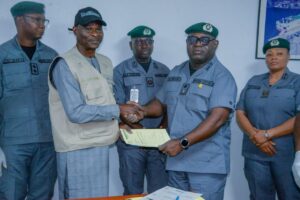
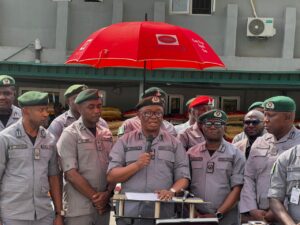

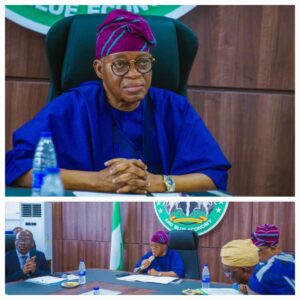

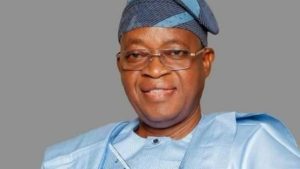





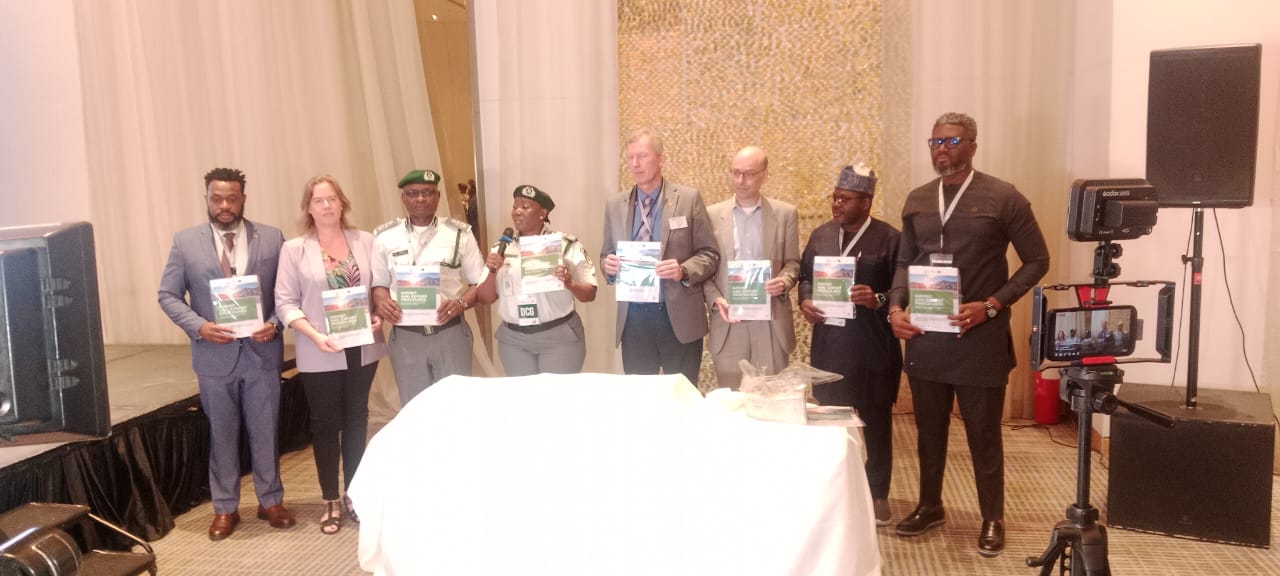
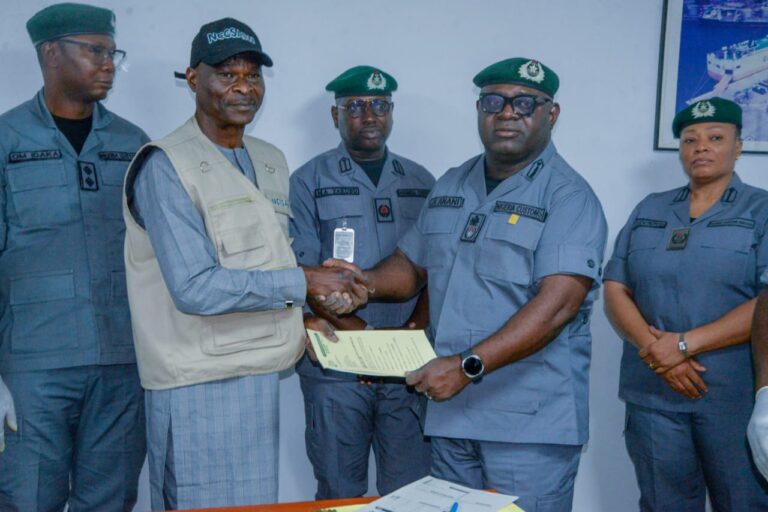
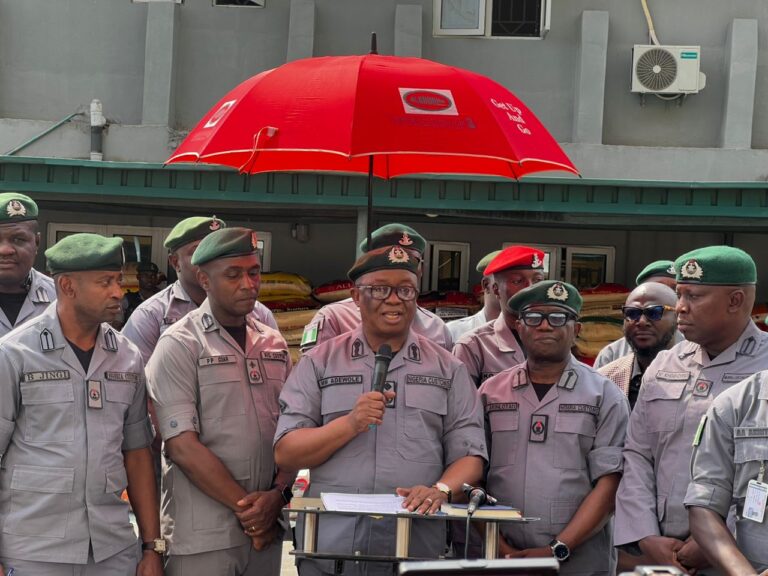



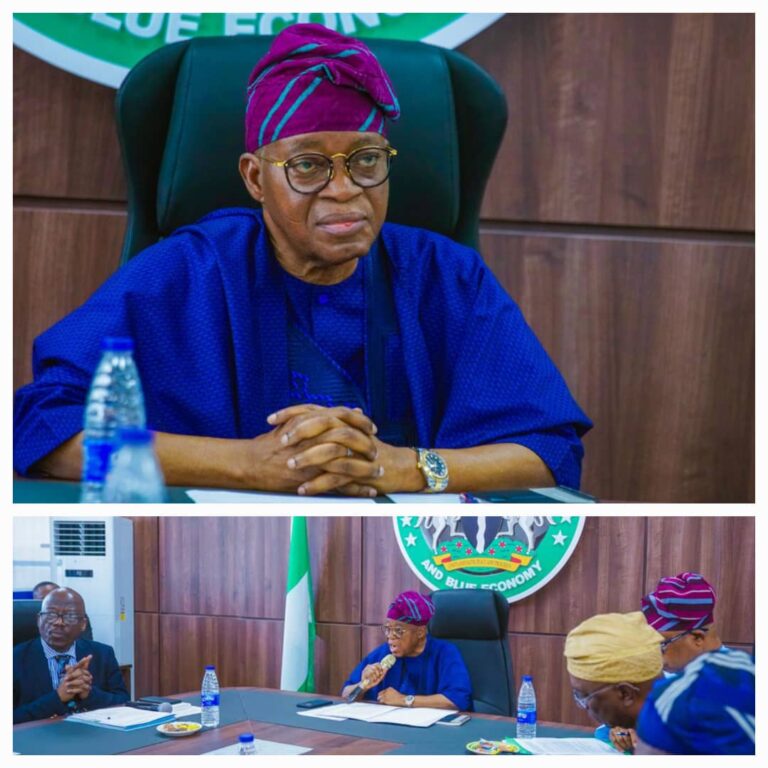

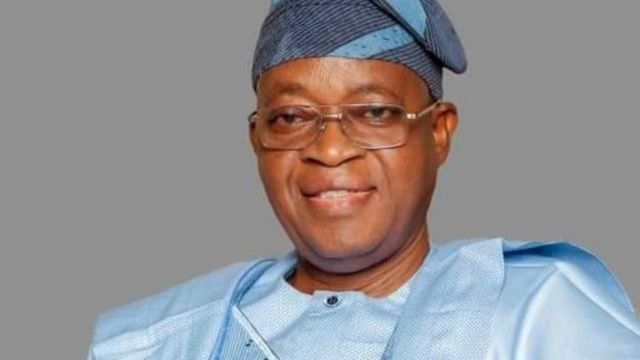

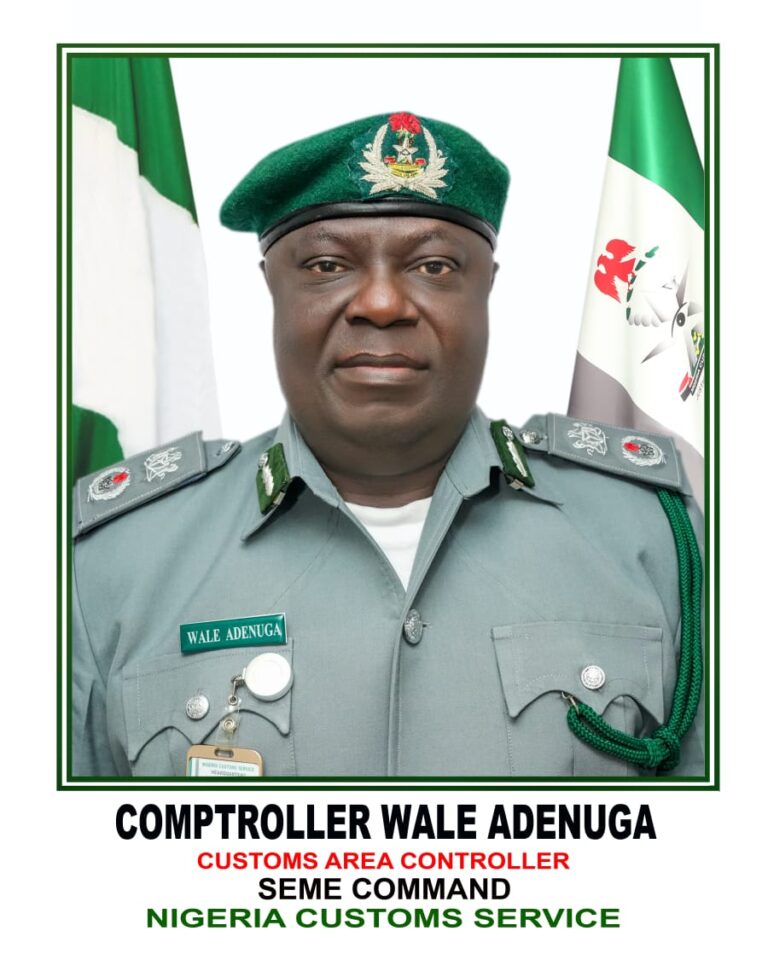
+ There are no comments
Add yours